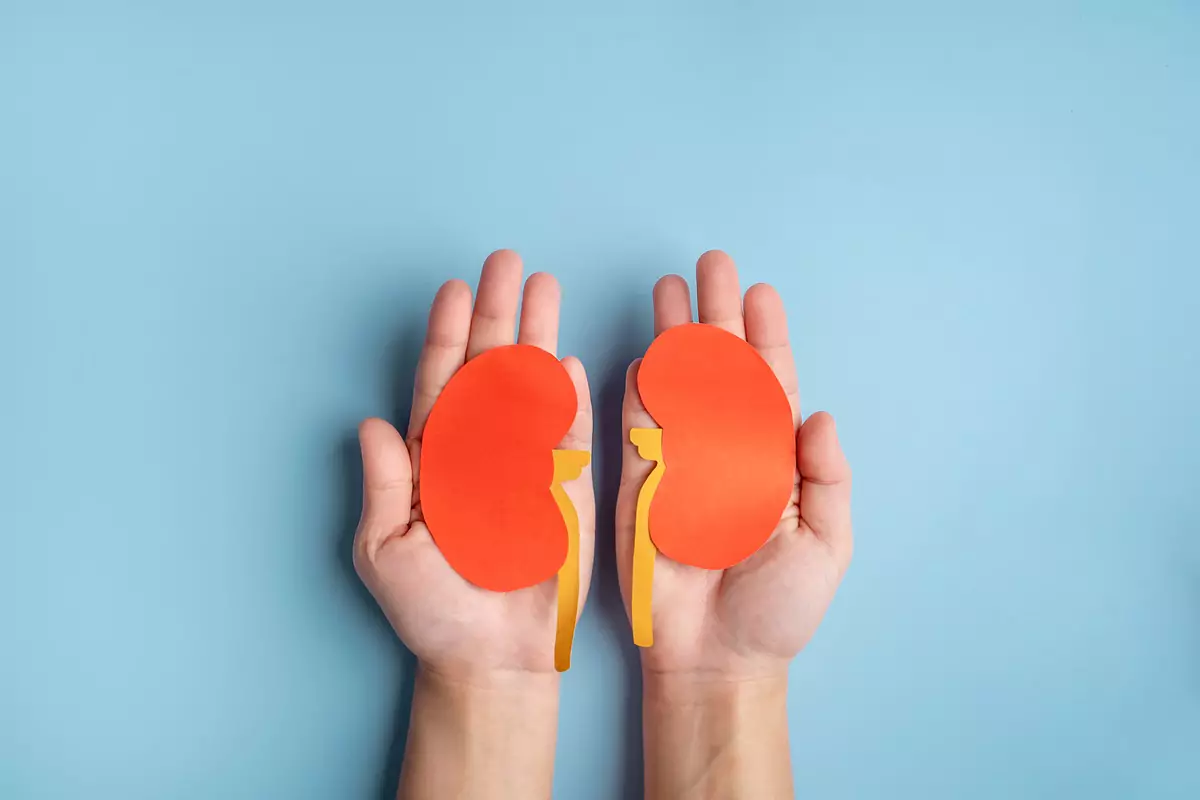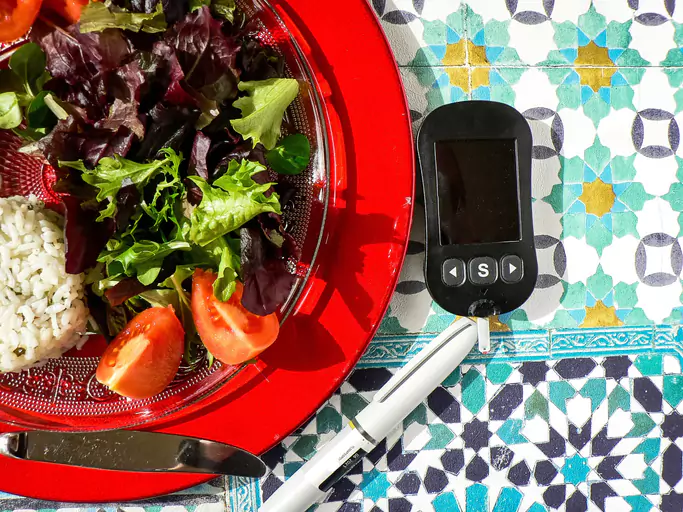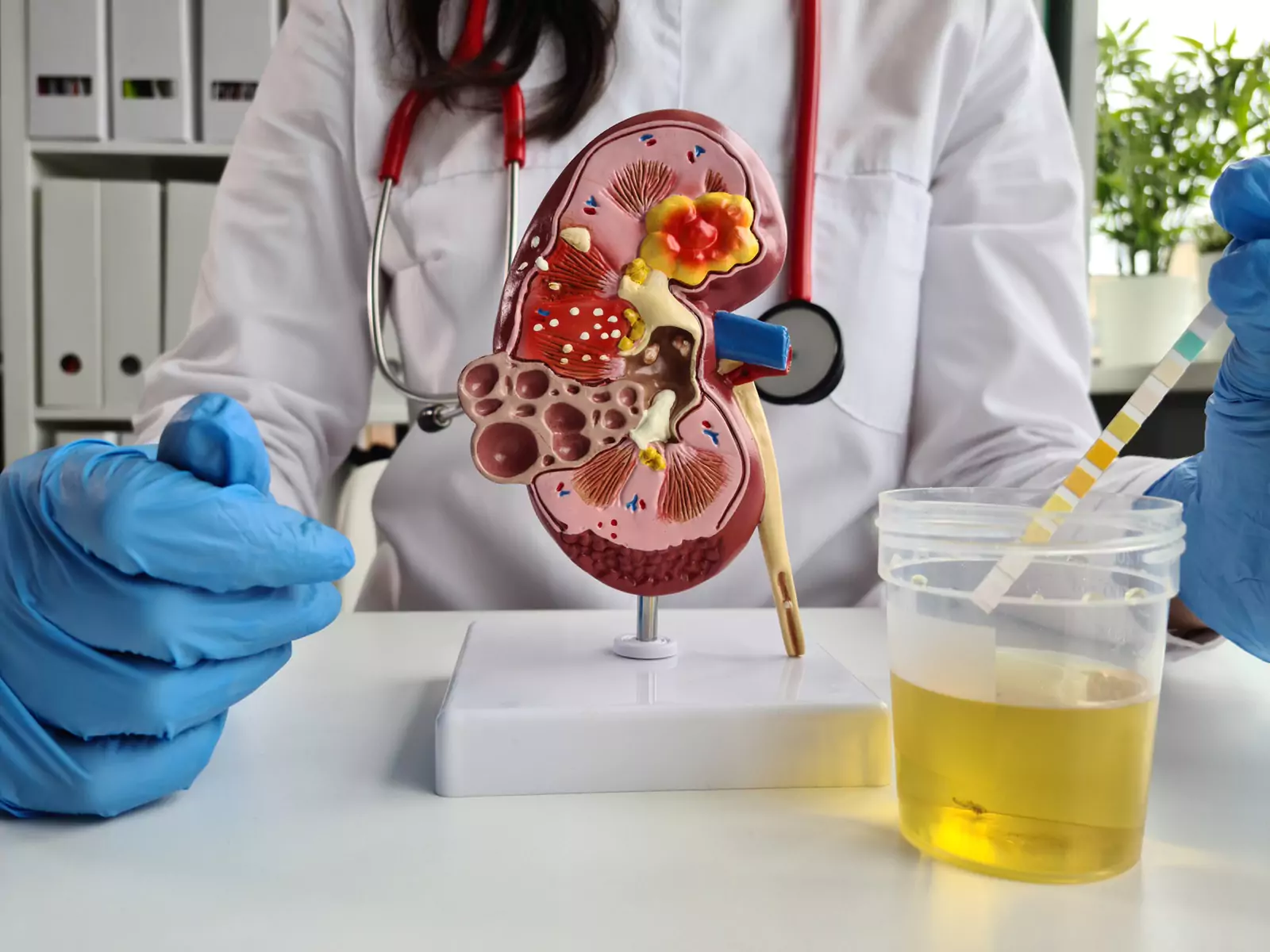
UP TO 40% OFF SITEWIDE






What Foods to Avoid With Kidney Disease and Diabetes?


Table of Contents
- How Does Diabetes Cause Kidney Disease?
- How Long Does It Take For Diabetes To Cause Kidney Disease?
- What Are The Symptoms Of Kidney Disease Due To Diabetes?
- Foods to Avoid With Kidney Disease
- Sugar-Sweetened Beverages
- Trans Fats
- How can you prevent diabetes and kidney disease?
- 7-day meal plan for kidney disease and diabetes
- Conclusion
- About The Author
If you are living with kidney disease or diabetes, you may be wondering what the best dietary changes to make in order to improve your overall health. It is important to understand how diabetes can affect the kidneys as well as the kinds of foods that should be avoided to help you better manage your condition. In this article, we will provide a comprehensive look at what foods to avoid with kidney disease and diabetes, along with a 7-day meal plan and treatment options to help you prevent diabetes and kidney disease.
How Does Diabetes Cause Kidney Disease?
Diabetes is a chronic condition that affects the body’s ability to produce and use the hormone insulin. Without insulin the body is unable to regulate blood sugar levels and this can cause the condition known as hyperglycemia. Over time, high blood sugar levels can damage blood vessels, including those in the kidneys, leading to a condition called diabetic nephropathy.
This is a form of kidney disease caused by diabetes. Diabetic nephropathy can lead to swelling in the legs and feet, high blood pressure, reduced kidney function and ultimately, kidney failure. To reduce the risk of developing this condition, people with diabetes should manage their blood sugar levels, exercise regularly and consume a nutritious diet.
It is also important to be aware of which foods to avoid with kidney disease and diabetes. Unfortunately there is no single diet that is ideal for people with both diabetes and kidney disease. However there are certain foods that can be problematic for those with both conditions. Foods that are high in sodium, protein and potassium should be avoided as they can cause further complications.
Additionally, foods with a high glycemic index such as refined carbohydrates and processed foods, are best avoided. Instead, eating a diet that is high in fiber and low in saturated fat is recommended. Foods such as vegetables, fruits, whole grains, legumes and lean proteins are recommended.
How Long Does It Take For Diabetes To Cause Kidney Disease?
The amount of time it takes for diabetes to cause kidney disease or kidney failure varies from person to person but it is generally accepted that diabetes is the leading cause of kidney disease. It usually takes several years for the damage to occur and the time frame often depends on how well the person manages their diabetes.
If a person takes charge of their condition and manages their diabetes correctly they can reduce the risk of kidney damage and slow its progress. People with diabetes are more likely to develop kidney disease, regardless of the time frame. This is because elevated blood sugar levels, especially over a long period of time can cause damage to the kidneys and other organs.
What Are The Symptoms Of Kidney Disease Due To Diabetes?
Diabetes is a leading cause of kidney disease and can cause a number of symptoms, including fatigue, nausea, loss of appetite, itching and numbness or tingling in the feet. In some cases, diabetes can cause infection in the urinary tract, leading to a burning sensation when urinating and frequent urination. High blood pressure, swelling in the legs and ankles and fluid retention can also be symptoms of diabetes-related kidney damage. If you have diabetes and experience any of the above symptoms, it is important to talk to your doctor and get tested for kidney disease.
Early diagnosis and treatment can help to prevent further complications. People with diabetes and kidney disease should be careful to monitor their blood glucose and follow a healthy, balanced diet that includes specific foods to avoid with kidney disease and diabetes. Eating a healthy diet can help to regulate blood sugar levels and reduce the risk of further damage to the kidneys.
Foods to Avoid With Kidney Disease
When managing kidney disease and diabetes, it is important to understand which foods to avoid in order to maintain a healthy, balanced diet. High-sugar, high-fat and processed foods can worsen the effects of kidney disease and diabetes and should be avoided. Here are some specific foods that those with kidney disease and diabetes should avoid:
Foods with High Sodium
People with renal disease and diabetes should be aware that certain foods can have an adverse affect on their health. High levels of sodium can be hard on the kidneys as extra fluid needs to be flushed out of the body to maintain a healthy balance. Excessive sodium intake can also increase blood pressure which can be dangerous for people with diabetes. Salt is the most common source of sodium but even foods that aren't salty can contain high levels of sodium.
Processed and canned foods such as frozen dinners canned soups and vegetables, are notorious for having large amounts of sodium added. While some fresh foods may also contain small amounts of sodium, those levels are generally lower than the amounts found in processed foods. When grocery shopping, selecting “low sodium” or “no added salt” options is ideal. Additionally there are a few types of food that need to be avoided altogether. These include:
- Cured meats such as bacon and hot dogs as well as lunch meats as they are packed with sodium
- Pickled foods, like olives and pickles
- Snack foods such as potato chips and salted nuts which can contain surprisingly high amounts of sodium
- Sauces and condiments, like soy sauce and many salad dressings It is also important to pay attention to food labels. Many products will list their sodium content, helping people with renal disease and diabetes more easily identify foods that are safe to consume. Some people may also choose to use salt substitutes, though these should be used with caution as some can contain potassium which is not recommended for those with renal disease.
Overall, choosing foods with lower levels of sodium is key for people with renal disease or diabetes. Paying attention to food labels and avoiding processed foods, cured meats and pickled foods are helpful strategies for maintaining a healthy diet.
High Potassium Foods to Avoid With Kidney Disease
When it comes to eating with kidney disease and diabetes, it's important to be aware of the foods you should avoid due to their high potassium content. Potassium levels are typically higher in people with kidney disease so avoiding high-potassium foods can help keep these levels in check.
Foods to avoid with kidney disease and diabetes due to their high potassium include: - Bananas - Spinach - Potatoes - Tomatoes - Beet greens - Raisins - Dates - Dried apricots - Peaches - Nectarines - Black-eyed peas - Winter squash It can also be beneficial to limit processed meat and dairy products as these can contain large amounts of potassium.
Additionally some processed foods such as potato chips and canned soups can contain high levels of potassium so these should also be avoided if possible. It's important to note that this is not an exhaustive list of high-potassium foods and it's best to consult with a doctor or dietician before making any significant changes to your diet.
Too Much Protein
Those with kidney disease and diabetes need to limit their intake of protein-rich foods as too much protein can cause significant health problems for those with diabetes and kidney disease. Protein is essential for everyone and still important for those with kidney disease and diabetes but the amount of protein consumed needs to be monitored and adjusted accordingly.
People with kidney disease need to restrict their protein intake as the kidneys become unable to process excessive amounts of protein. Protein is broken down into byproducts and those with kidney disease may not be able to process these byproducts, leading to an accumulation in the bloodstream which can further damage the kidneys and other organs.
The right amount of protein for those with kidney disease and diabetes will depend on the individual and their particular condition. High-protein foods to avoid with kidney disease and diabetes include animal sources of protein like red meat, poultry, fish and eggs. Dairy products such as milk, cheese and yogurt, may also need to be limited.
Additionally, plant-based proteins such as legumes and nuts should also be limited in individuals with kidney disease and diabetes due to the high phosphorus and potassium content. If you have kidney disease and diabetes, it is important to talk to your doctor about the right amount of protein for you. They can help you determine the right amount to eat and which foods should be avoided. Eating a balanced diet and limiting protein can help maintain kidney health, monitor your blood sugar and even help reduce inflammation.
High-phosphorus Foods
People with diabetes and kidney disease should avoid foods that are high in phosphorus as phosphorus can accumulate in the body and lead to further health complications. High-phosphorus foods include:
- Dairy products: Milk, cheese butter sour cream, ice cream and yogurt contain high levels of phosphorus and should be avoided.
- Grains: Refined grains such as white bread and pasta, are high in phosphorus.
- Legumes: beans, peas and lentils contain phosphorus in their outer shell which should be removed before eating as this outer shell is the highest in phosphorus.
- Nuts and seeds: Peanuts and almonds are high in phosphorus and should be avoided.
- Processed meats: Salami, pepperoni, hot dogs and sausage are high in phosphorus and should be avoided.
- Processed foods: Processed foods such as ready-made meals, frozen dinners and canned soups, are generally high in phosphorus and should be avoided.
Additionally, it is important to limit the intake of foods that are naturally high in phosphorus such as chocolate, nuts and soy products as these can contribute to elevated phosphorus levels in the body. It is also important to read food labels carefully and to be aware of added phosphorus which can be found in some processed foods such as breakfast cereals and snack bars.
Sugar-Sweetened Beverages
Beverages are not only high in sugar but they also can contain high levels of phosphorus, potassium and sodium which can be problematic for those with kidney disease or diabetes. One of the most common forms of sugar-sweetened beverages are sodas, including traditional carbonated drinks, sport and energy drinks and fruit drinks with added sugar.
Sugary drinks generally contain high levels of fructose and glucose which can cause a sudden spike in blood sugar levels, leading to further complications for those with diabetes. In addition these beverages are typically very high in phosphorus, potassium and sodium which can cause further problems for people with kidney disease who may have difficulty processing and eliminating these minerals from the body.
It’s best to avoid sugar-sweetened beverages altogether to prevent any potential complications for those with kidney disease and/or diabetes. Instead, it’s recommended to drink low-sugar and sugar-free beverages such as herbal teas, non-sweetened almond milk and filtered water. If these drinks are not to your taste, you can use artificial sweeteners such as stevia, in moderation.
Trans Fats
Trans fats are a type of fat that is created when liquid vegetable oils are hydrogenated to become solid or semi-solid which is the process of adding hydrogen to an unsaturated oil in order to make it solid. The process of hydrogenation increases the shelf life of food but also, increases the level of unhealthy fat in the food.
Trans fats can be found in many processed foods such as fried foods, crackers and bakery products. The consumption of trans fats can be harmful in individuals who already have kidney disease and diabetes because it increases their risk of developing cardiovascular diseases and diabetes complications such as kidney failure and heart attack.
Trans fats can also increase levels of low-density lipoprotein (LDL) cholesterol, otherwise known as “bad” cholesterol and lower levels of high-density lipoprotein (HDL) cholesterol, otherwise known as “good” cholesterol. It is important to avoid trans fats because they can be hard to identify and different countries may label them differently.
For instance, trans fats may be labeled "partially hydrogenated oil" in the United States but as "hydrogenated fat" in Canada. To reduce the amount of trans fat in one’s diet, it is important to read food labels carefully and to limit the amount of processed foods one eats. It is also beneficial to cook with healthier alternatives such as olive oil canola oil or avocado oil.
How can you prevent diabetes and kidney disease?
The best way to prevent diabetes and kidney disease is to make healthy lifestyle changes. Eating a balanced diet that is low in fat, maintaining a healthy body weight and getting regular exercise are all integral parts of living a healthier life. When it comes to foods to avoid with diabetes and kidney disease the most important rule to follow is to limit your intake of unhealthy foods.
Processed and fried foods are a no-no. Sugar-sweetened beverages, like sodas and fruit juices, should also be avoided. Other foods to avoid include cakes, cookies and other desserts; processed meats; salt-laden snack foods; and white flour products. As far as healthy options, your diet should be focused on fruits and vegetables, whole grains, beans and legumes and lean proteins.
Eating a variety of these food groups will help provide your body with the important nutrients and minerals it needs to stay healthy. Along with focusing on nutrient-dense foods, drinking plenty of water is also key. It is also important to pay attention to portion sizes as overeating can put added strain on your kidneys and pancreas.
Make sure to monitor your glucose levels closely and take any necessary medications as prescribed. It is also beneficial to speak with a registered dietitian to find out what dietary changes would work best for your individual needs.
7-day meal plan for kidney disease and diabetes
Eating the right foods is a key part of managing kidney disease and diabetes. A 7-day meal plan can help guide your food choices. When creating a meal plan, it is important to focus on nutrient-dense foods that are low in sodium, phosphorus and potassium. This includes foods such as lean proteins, whole grains, fruits, vegetables and low-fat dairy.
It is also important to limit processed and fast foods, sugary drinks and trans fat.
Day 1: Breakfast: Oatmeal with blueberries, a hard-boiled egg and a glass of fat-free milk Lunch: A spinach and goat cheese salad with a side of quinoa and a low-sodium vinaigrette Dinner: Salmon with roasted sweet potato and green beans
Day 2: Breakfast: Greek yogurt parfait with fresh fruit and slivered almonds Lunch: Vegetable wrap with hummus and a side of raw vegetables Dinner: Grilled chicken with a side of brown rice and steamed broccoli
Day 3: Breakfast: Avocado toast with an egg and a glass of fat-free milk Lunch: Turkey burger with a whole-wheat bun, lettuce and tomato, served with a side of baked sweet potato fries Dinner: Baked cod with roasted Brussels sprouts and carrots
Day 4: Breakfast: Overnight oats with sliced banana and a scoop of nut butter Lunch: Chickpea and quinoa salad with vinaigrette dressing Dinner: Grilled shrimp with quinoa and steamed green beans
Day 5: Breakfast: Spinach and feta omelet with a side of berries Lunch: Black bean tacos with salsa and a side of greens Dinner: Tofu stir-fry with brown rice and steamed carrots
Day 6: Breakfast: Whole wheat toast withpeanut butter and banana Lunch: Tuna salad on a bed of greens with a side of cherry tomatoes Dinner: Baked chicken thighs with roasted potatoes and green beans
Day 7: Breakfast: Whole wheat pancakes with fresh fruit and a glass of fat-free milk Lunch: Veggie wrap with hummus and a side of fruit Dinner: Grilled salmon with roasted potatoes and steamed spinach
Conclusion
In conclusion, understanding the risks that diabetes can present to the kidneys and taking steps to prevent kidney disease are essential. The best way to protect your kidneys is to maintain a healthy lifestyle and diet by limiting the consumption of foods with high sodium, potassium, phosphorus and trans fats as well as avoiding sugary drinks. Furthermore, following a healthy 7-day meal plan specifically tailored to diabetes and kidney disease will help you to maintain your health and wellbeing and to avoid further complications.
About The Author
Meet Dr. Ahmet Ergin a highly skilled and dedicated endocrinologist with a passion for diabetes care. Dr. Ergin earned his medical degree with honors from Marmara University in Istanbul. He completed internal medicine residency and endocrinology fellowship at Cleveland Clinic.
Dr. Ergin is board-certified in Internal Medicine, Endocrinology, Diabetes and Metabolism due to his vast medical expertise. He's a certified diabetes educator, author of "The Ultimate Diabetes Book," and founder of "the SugarMD YouTube channel." Dr. Ergin offers exceptional diabetes care to his patients in Port Saint Lucie, FL, helping them manage effectively.
Disclaimer: The website's disease and treatment info is general guidance and not a substitute for professional healthcare advice. Seek professional advice for personalized diagnosis and treatment plans to ensure accurate and effective care. Consult a qualified healthcare professional for any questions about your health and wellness.
Written By Dr. Ahmet Ergin
466 total articles
Meet Dr. Ahmet Ergin, a highly skilled and dedicated endocrinologist with a passion for diabetes care. Dr. Ergin earned his medical degree with honors from Marmara University in Istanbul. He completed internal medicine residency and endocrinology fellowship at Cleveland Clinic. Dr. Ergin is board-certified in Internal Medicine, Endocrinology, Diabetes, and Metabolism due to his vast medical expertise. He's a certified diabetes educator, author of “The Ultimate Diabetes Book,” and founder of “the SugarMD YouTube channel.” Dr. Ergin offers exceptional diabetes care to his patients in Port Saint Lucie, FL, helping them manage effectively. For a closer look into his insights and experiences, connect with Dr. Ahmet Ergin on LinkedIn, Instagram, and YouTube.”
Disclaimer: These statements have not been evaluated by the Food and Drug Administration. Information on this website isn't intended to treat, cure or prevent any disease. Discuss with your doctor and do not self-treat.
Products















